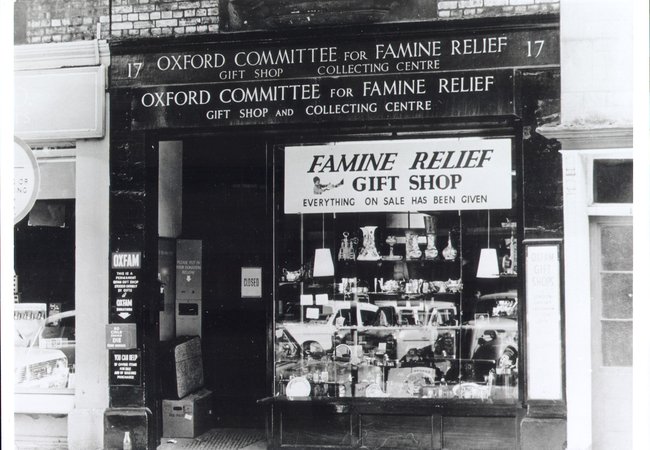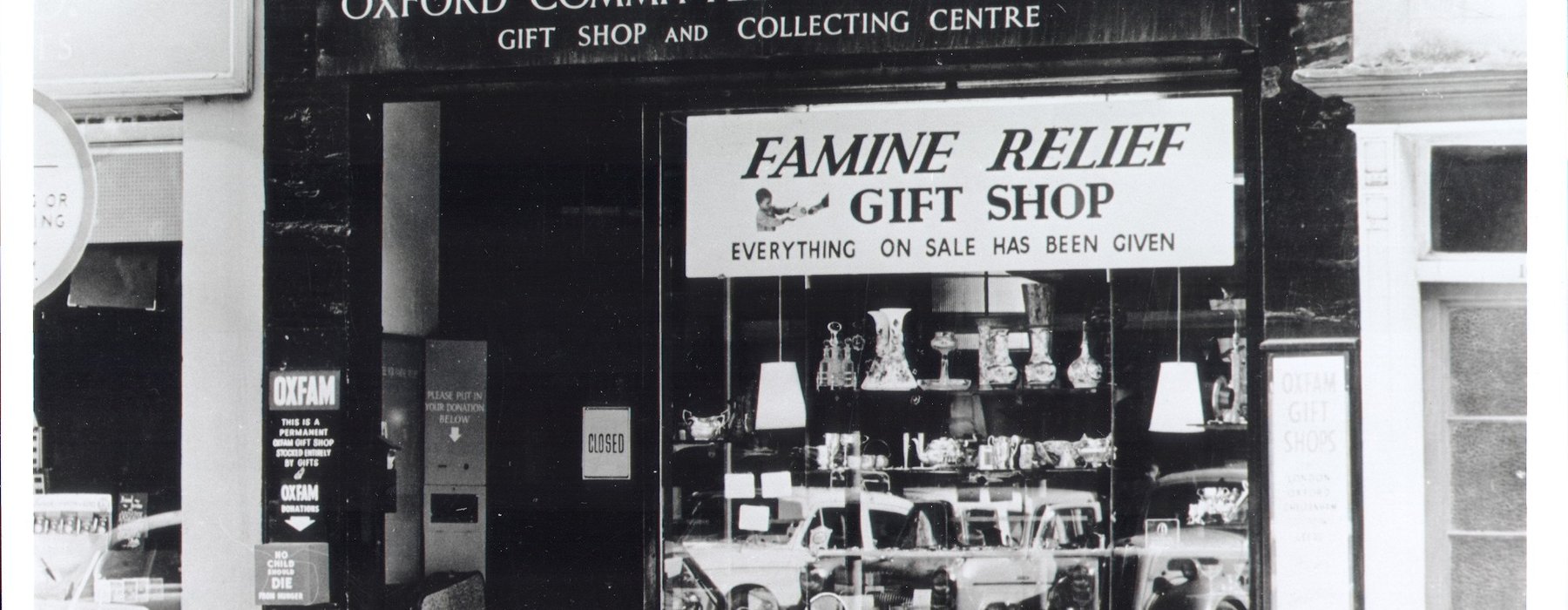- How we work
- Oxfam's CEO, Directors and Trustees
- Plans, reports and policies
- Working at Oxfam
- Keeping people safe
- History of Oxfam
- Frequently asked questions
- Where we work
- Oxfam: the story so far
- Tackling abuse: Information and updates
- The Inclusive Language Guide: When we include everyone we can overcome poverty
The first permanent Oxfam shop opens on Broad Street in Oxford six years after the Oxford Committee for Famine Relief was established.


History of Oxfam
Oxfam’s history is a patchwork of movements, communities and passionate individuals who believe in a fairer and more equal world.
Our organisation was founded in 1942 as the Oxford Committee for Famine Relief, in response to the Allied blockade that had caused famine in Axis-occupied Greece.
We took action and raised vital funds to support the famine relief efforts, but we also spoke out against the injustice of ordinary people paying the price of decisions made by a select few. In 1945 famine committees around the UK urged the UK government to let Brits send food parcels to Germany and to lift the blockade. We have always challenged the divisive and harmful decisions of the world’s most powerful people as an outspoken voice for fairness and justice.
Today, we acknowledge this part of our history – and the part we’ve played in harmful narratives that have placed people in the Global North as the ‘saviours’ and people in the Global South as the ‘victims’.
We’re doing everything we can to undo the harm that has caused, and concentrating on ensuring power is rebalanced in favour of ALL the people best placed to lead us in the fight against poverty.
In 1947 we opened our first charity shop in the UK. Today, 23,000 amazing volunteers run 560 shops nationwide. They raise vital funds to support our work fighting for an equal future without poverty. They are also important community spaces that bring people together and helped us all to shop more sustainably.
Today Oxfam GB is part of a confederation of 21 Oxfams all over the world, working in partnership and collaboration with activists, change makers and communities. Throughout our history we have combined practical action with bold campaigning, looking for ways to make sure that marginalised groups have their voices heard and acted on. Because an equal future is possible. And because there is no them, just us.